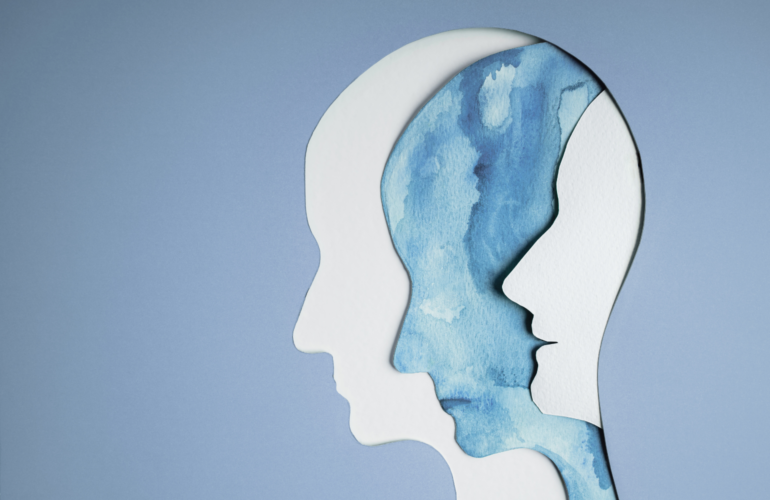Every day we’re bombarded with news of gun violence. You can take a technology break and still not escape it, especially when the tragedy hits close to home and everyone’s talking about it.
Whether you experience trauma firsthand or learn about it from the media, consciously or unconsciously, you’re going to have a reaction. “You might feel sad, but it doesn’t affect your day-to-day functioning or it does and you might be traumatized,” explains Imran Shakir, DO, child and adolescent psychiatrist and chief medical officer of Chicago Behavioral Hospital in Des Plaines. “The distinction is how profoundly it affects your functioning and emotions. Most trauma, when we’re not traumatized, naturally goes away. The anxiety, hypervigilance [constantly looking out for potential threats to safety], fear of engaging in events we otherwise wouldn’t have batted an eye at in the past, all gets better as time goes on. If it doesn’t get better, it’s important to understand you might need professional help.”
In the short-term, the goal of therapy is to teach patients coping mechanisms; exercises to give them control over how intense and long of a reaction they’ll have during a panic attack or anxiety filled moment, Shakir says. In the long-term, it helps patients process trauma and heal from it in a healthy way.
After a traumatic event, like the July 4 shooting in Highland Park, it’s important to take time out to focus on your mental health—before trauma has a chance to tighten its grip and hold you back from living.
— NAMI Lake County Illinois (@NamiLake) September 27, 2021
Activities to avoid
If you find yourself obsessively watching TV news updates about the tragedy or constantly discussing it with friends, stop, insists Andy Wade, executive director of the National Alliance on Mental Illness of Illinois. “Telling the story is how we process it, but continually retelling it can actually reinforce some of the indicators of trauma we’re trying to work through.”
The first stop on the way to healing is recognizing the signs you’re traumatized.
- Are you avoiding people?
- Having intrusive thoughts?
- Are flashbacks getting in the way of life?
- Is it hard to focus? Acknowledge that it’s happening, Wade says, and know that everyone processes trauma in their own way. “We’re all decompressing from a very fearful situation. Ignoring it isn’t going to help.”
Take steps toward healing
Shakir emphasizes that the hardest part about trauma is the world changing afterward. “Getting back into your routine is a way to force yourself into feeling normal again and making the world feel a little bit similar to the world before the trauma.”
It might be difficult to venture out at first, but you can get through it. Shakir advises labeling your emotions and connecting them to the source. For example, tell yourself: I feel anxious about grocery shopping because of the shootings in Buffalo, New York. It provides a level of control that’s necessary for healing. If you don’t label and process your feelings, the risk is, it will get worse in time. Anxiety will turn into avoidance or a total inability to do that activity.
“We don’t have control over how we react,” Shakir says. “But we can have control over the intensity and the length of our reaction. That’s where coping mechanisms come in.”
Exercises to calm anxiety
Trauma tends to elicit a physical, fight or flight reaction—a chemical response that causes our palms to sweat, heart to race and hands to tremble, Shakir explains. If you’re in the moment, having an acute reaction, whether it’s a panic attack or a flashback, consciously go through your five senses—sight, touch, smell, sound and taste. For example, if you’re walking down the street, say what you see or smell as you pass by—a Starbucks, freshly cut grass. It will help you calm down, become present in the moment and feel safe.

Jung Mi Yi, Psy.D., clinical psychologist, professional staff and director of admissions at Yellowbrick Treatment and Consultation Center in Evanston, offered these additional tips:
- Visualize a vacation you loved.
- Taste something that brings you joy, like ice cream. Take small bites and savor the creamy, coolness on your tongue.
- Listen to music and dance or push yourself on a swing. The rhythmic motion will soothe your body and your brain.
- Spend time talking or doing something fun with someone supportive you love. It’s the best antidote to any form of trauma.
Don’t be quick to pathologize your symptoms
Although It’s fairly normal to exhibit some indicators of post-trauma after experiencing a tragedy, it’s rare to develop Post Traumatic Stress Disorder (PTSD), according to Clifton “Cliff” Saper, PhD., lead clinical psychologist and director of clinical services for Behavioral Medicine Service Line Ascension Illinois in Chicago. Maybe 25% of people do. But it usually happens months later.
The signs of PTSD include:
- A high degree of vigilance and startle
- Fatigue and anxiety over trivial things
- Tendency to avoid social interactions
- Isolating to the point it interferes with functioning.
“Whenever there’s an event like Highland Park, the issue for most people is they always want life to be predictable and certain,” Saper says. “But to be uncertain and live with unpredictability is normal.”To calm worry, he says, remind yourself that you’re safe. “Statistically, you’re probably not going to be involved in a traumatic event.” It takes time and practice to master coping skills and move forward after a traumatic event. But odds are, you will. “A unique part of the NAMI message is people can get better,” Wade says. “You do the work and ask for help when you need it.”
More From Better:
- A New 988 Suicide and Crisis Hotline Is Like 911 for Mental Health Emergencies
- What Drives Someone to Commit Violence and How Can We Help Break the Cycle? A Licensed Clinical Psychologist Weighs In
- Better Family Dinners: Bacon-Wrapped Dates and Patatas Bravas Recipes from Cafe Ba-Ba-Reeba! Chef Eric Jorgensen

Melanie Kalmar is a freelance journalist specializing in business, healthcare, human interest and real estate. When she’s not writing, she enjoys spending time with her family.

